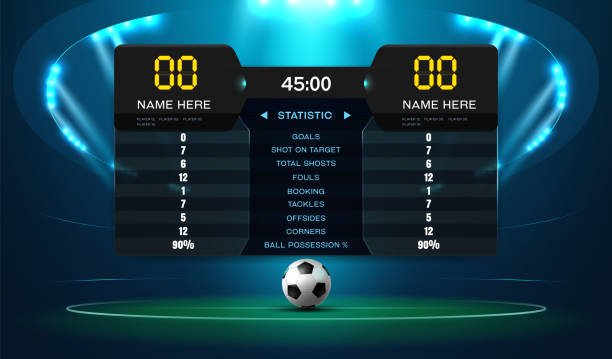Introduction
In the ever-evolving world of music, opinions can spark intense debates—sometimes in unexpected ways. One such incident recently caught the attention of fans and critics alike when Deme, a popular social media influencer and music critic, reacted to the much-anticipated release of Evil’s new song. While reactions to music releases are typically met with excitement or mild interest, this particular one escalated into something far more controversial. What seemed like a casual opinion on a new track quickly spiraled into a full-blown cultural debate.
So, what happened exactly? Why did Deme’s reaction stir so much controversy, and what does it reveal about the modern landscape of music and internet culture? Let’s dive into this fascinating saga to unpack all the layers of drama, opinions, and the impact it had on Deme, Evil’s fanbase, and the general public.
The Build-Up to the Release: Expectations Were High
Before we even get to Deme’s reaction, it’s important to understand the weight this new Evil’s song carried. Evil, known for pushing boundaries in both sound and lyricism, has always had a polarizing presence in the music industry. Some love his dark, edgy style, while others find it a bit too controversial for mainstream taste.
Fans were eagerly awaiting this release, speculating on what musical direction Evil would take next. Would it be another aggressive anthem or a more introspective piece? These questions lingered for weeks leading up to the song’s debut. But little did anyone know, the real drama was about to unfold not through the music itself, but through how one person reacted to it.
Deme’s Reaction: The Trigger for the Storm
Deme is known for her no-holds-barred approach to music reviews. With a massive following, her opinions carry weight—sometimes more than the artist’s own statements. When she posted her initial reaction to Evil’s song, it was meant to be a light-hearted and genuine response. But as you can probably guess, things didn’t stay that way for long.
In her video, Deme expressed both admiration and criticism of the track. She praised the production quality, calling it “top-notch” and acknowledging Evil’s unique ability to push musical boundaries. However, when it came to the lyrics, she wasn’t so kind. “It feels a bit like he’s trying too hard to shock, rather than making something meaningful,” Deme said in her review. “It’s like he’s going for controversy, not creativity.”
It was this statement, combined with her blunt delivery, that ignited the flames of controversy. While many fans appreciated her honesty, others took offense. Was she right in calling out Evil for “trying too hard,” or was she missing the point of the artist’s vision?
The Backlash: A Divide Among Fans
As soon as Deme’s video went live, the internet went into a frenzy. Fans of Evil were quick to jump to his defense, accusing Deme of being overly critical and dismissive of the artist’s intentions. They argued that Evil’s music had always been about challenging societal norms and pushing the limits of what was acceptable in music, and Deme was simply too out of touch with that message.
On the other hand, Deme’s supporters rallied behind her, praising her for speaking truth to power. They argued that her critique was valid, and that artists like Evil shouldn’t be immune to constructive criticism just because they were “controversial.”
Here’s a quick breakdown of the two sides of the debate:
-
Team Evil
-
Defensive stance: Evil’s music has always been about challenging the status quo.
-
Argument: Deme was too harsh and misinterpreted Evil’s artistic vision.
-
Conclusion: Music should not be held to a “safe” standard. Art is about expression, no matter how unsettling it may seem.
-
-
Team Deme
-
Defensive stance: Criticism is essential for the growth of any artist.
-
Argument: Deme’s take was fair, and Evil was leaning into shock value rather than artistry.
-
Conclusion: Fans should hold their favorite artists accountable for what they put out into the world.
-
The Role of Social Media in Amplifying the Drama
It wasn’t just the music fans who got involved. Social media platforms became a battleground where memes, hot takes, and arguments spread like wildfire. Hashtags like #DemeVsEvil and #EvilCritique began trending, drawing in people who didn’t even follow the artist or the influencer but had their own opinions about the debate.
Influencers on Twitter and Instagram weighed in, some taking sides and others trying to mediate. It wasn’t long before the controversy gained the attention of mainstream media, who jumped at the opportunity to cover the story. The situation quickly spiraled, transforming from a simple music review into a much larger commentary on the nature of artistic critique in the modern age.
What’s at Stake: Art vs. Controversy
At the heart of this controversy lies a much deeper issue: the line between art and controversy. Evil has made a career out of walking this line, blending disturbing themes with avant-garde music. His fanbase embraces this, seeing him as an artist who isn’t afraid to face societal taboos head-on. For many, this makes him a hero of sorts in the music world.
Deme, however, doesn’t share that viewpoint. In her reaction, she challenged the notion that shock value should be equated with quality. Is it enough for an artist to simply provoke, or should they aim for something more substantial?
This tension—between those who see art as an exploration of new ideas and those who believe it should have a deeper meaning—was precisely what made the debate so heated.
Frequently Asked Questions (FAQs)
1. Did Deme go too far in her critique of Evil’s song?
It’s a subjective matter. Deme’s criticism was blunt, but whether or not it was “too far” depends on personal perspective. Some feel she was being unfair, while others believe she was providing the kind of critique artists need to hear to grow.
2. Why is Evil’s music so controversial in the first place?
Evil’s work often touches on themes that many find disturbing, such as violence, mental health struggles, and societal rejection. This has led to both passionate support and harsh criticism over the years.
3. How do artists handle criticism from their fanbase?
Many artists, including Evil, often react defensively to criticism. However, the best responses come from artists who are open to feedback, using it to fuel their future projects and grow as creators.
4. Will this controversy affect Deme’s career?
Deme’s career has already been marked by her unfiltered opinions, so this controversy could either elevate her as an even more polarizing figure or lead to backlash from Evil’s loyal fanbase. Only time will tell.
Conclusion: A Reminder of the Power of Opinion
At the end of the day, the controversy surrounding Deme’s reaction to Evil’s new song is a testament to the power of opinion in today’s world. What was meant to be a simple reaction turned into a full-fledged cultural debate. It reminded us all that in the age of social media, even the smallest commentary can spiral into a massive event.
Whether or not Deme’s critique was justified, one thing is for sure: the conversation surrounding the line between art, controversy, and critique is far from over. What started with a reaction to a song has transformed into a larger conversation about the nature of creativity itself.
















Leave a Reply